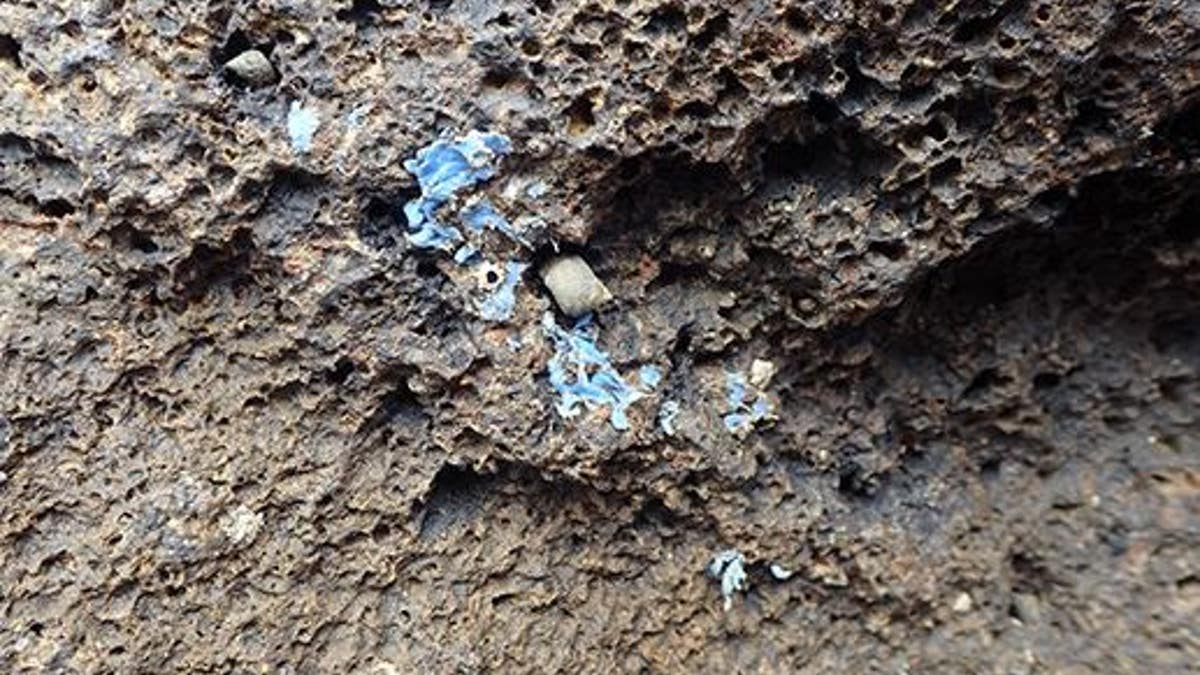Plastic pollution seems to have found a new way to creep into the natural landscape.
Researchers have discovered a strange never-before-seen type of pollution that they've dubbed "plasticrust," which seems to originate in the ocean and adheres directly onto rocks along the shoreline of the Portuguese island of Madeira.
“[The crusts] likely originated by the crash of large pieces of plastic against the rocky shore, resulting in plastic crusting the rock in a similar way algae or lichens do,” Ignacio Gestoso, a marine ecologist who led the research, told Earther.
Gestoso reportedly first observed the weird crusts on the island's shoreline in 2016, and the following year the plastic crusts were still there. Early this year, they began to do their own research and collect samples to analyze.
HUGE CRATER MAY HAVE BEEN CAUSED BY WWII BOMB

Plasticrust is a form of plastic pollution not yet seen before on Earth’s coastlines (Ignacio Gestoso)
"Plastic debris is one of the most extensive pollution problems our planet is facing today and a particular concern for marine environment conservation," the researchers state in their study's abstract. "The dimension of the problem is so large that it is possible our current era will generate an anthropogenic marker horizon of plastic in earth's sedimentary record."
MYSTERIOUS FRESHWATER RESERVOIR FOUND HIDDEN BENEATH THE OCEAN
Although it's unclear what the impact of the "plasticrust" is for marine life near the shoreline that ingests it, it's certainly possible that it could cause problems with digestion or introduce other pollutants, according to Earther.
Gestoso said future research would examine how much plastic the shoreline's grazing snails are ingesting.
“As a marine ecologist researcher, I would prefer to be reporting other types of findings, and not a paper describing this sad new way of plastic pollution,” Gestoso told the science news site. “Unfortunately, the magnitude of the problem is so huge that few places are free of plastic pollution.”
